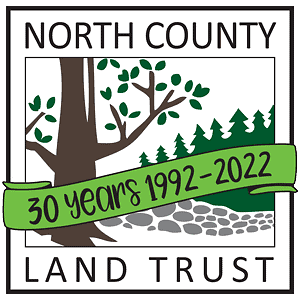
The orchard orb weaver is a strikingly colorful spider, known for its vibrant green body and intricate web designs. Though the word “cute” might not come to mind for many who think of spiders, these eight-legged creatures are harmless to humans and play a vital role in our ecosystem by preying on other insects such as flies, beetles, wasps, and mosquitoes.
These skilled architects are commonly found in orchards, gardens, and wooded areas, making places like Crocker Conservation Area an ideal habitat for them. In fact, hikers have reported spotting these colorful spiders at Crocker Conservation Area on iNaturalist. Orchard orb weavers construct their webs in vegetated areas like low shrubs and small trees, creating delicate yet effective traps for flying insects. While some spiders construct webs in permanent spots, orchard orb weavers can relocate their webs to better hunting grounds to optimize their chances of success.
Crocker Conservation Area is a prime example of our dedication to preserving natural habitats. This scenic 150-acre Fitchburg property features a variety of trails that allow visitors to experience its diverse landscapes, from dense forests to open meadows. Activities such as hiking, bird watching, nature photography, and more are encouraged, providing ample opportunities for nature enthusiasts to enjoy and appreciate the area’s rich biodiversity.
The presence of the orchard orb weaver at Crocker Conservation Area highlights the success of our conservation efforts and the importance of protecting these natural environments. These spiders, like many other species, contribute to the ecological stability of the area, showcasing the intricate connections within our ecosystems.
North County Land Trust relies on supporters like you to protect vital habitats and the wildlife that depend on them. Thank you for your support.
If you’ve spotted creatures at our conservation areas, we’d love to see them! Make sure to tag us @northcountylandtrust on either Instagram or Facebook and use the hashtag #ncltwildlife. Don’t forget to log your sightings on iNaturalist, too. Your observations help us keep track of the incredible biodiversity in our conservation areas.
